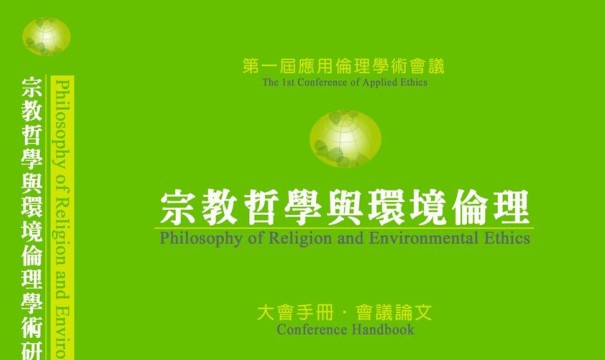
傅可思
摘要:
越來越多人開始相信茹素不但是改善健康的明確選擇,也預示一個我們如何成為更優質的地球公民的新願景。這個新願景體認到優良的生活源自於健康,健康來自於飲食的篩選,而我們所選擇的飲食反應並且決定人類對於生物圈的影響。我們集體消費的肉品數量影響我們如何使用與管理自然資源,包含森林、土地、水與石化燃料。簡而言之,我們對肉品及其他動物製品的依賴越大,我們越是草率地以這些資源來滿足我們的飲食習慣。假設,如我所述,目前全球主流農業濫用環境的方式對我們的健康有害,則當越多的動物製品被我們所消耗,我們整體及個人的福祉都將受損。 這裡所揭櫫的是對於不健康社會的飲食習慣必需因自身與自然的整體利益而有所改變的體悟。
在這篇論文中我列舉了數種肉品工業對於環境的負面衝擊,並討論了以下幾種現象:森林消失、過度漁獵、以及水資源的過度利用。我認為,由全球視野觀之,肉品經濟導致環境災難。例如對石化資源的依賴,溫室氣體的排放,盲目的追求經濟成長,以及消費廢棄物的傾倒,終將有自食惡果的一刻,人類也將了解肉食對人類與我們賴以為生的地球是一條死路。相反的,素食經濟有助於帶來我們都該致力於的資源永續使用。因此,為人類與地球未來的明智理性規劃之途徑,必須要以建立素食習慣為目標。如此,我們可以學習更融洽的與人類以外物種共生,並在自然界擔起更為負責任的角色,同時,我們認清在生態限度內食物生產以更理性地生活的重要性,並開始身體力行。
──(李軍漢中譯)
Vegetarianism, Human Well-Being, and Environmental Health
Michael Allen Fox
Professor of Philosophy, Queen’s University (Canada)
Adjunct Professor of Social Science, University of New England (Australia)
ABSTRACT:
Many people have begun to accept that adopting a vegetarian diet is not only a prudent way to improve their own health, but also signifies a new vision of how we might live our lives as better citizens of the Earth. This fresh outlook includes an awareness that the good life for a human being entails good health; that good health in turn rests upon a carefully chosen diet; and that the diet we choose reflects, as well as determines, our species’ impact on the biosphere. The amount of meat we collectively consume has a profound effect on how we use and manage natural resources – forests, land, water, and fossil fuels. To put it simply, the greater our dependence on meat and other animal products, the more we thoughtlessly commit these resources to satisfying our dietary preferences. And if, as I argue, the prevailing form of agroindustry abuses the environment worldwide in ways that are detrimental to our health, then the more animal products we consume, the more our individual and collective well-being will suffer. What dawns here is an understanding that the food orientation of unhealthy societies must be changed for the good of their members and for the good of nature as a whole.
In this paper I list a number of negative impacts that the meat industry has on the environment and discuss three of these: deforestation, overfishing, and overconsumption of fresh water supplies. I argue that from a global perspective, a meat economy leads to environmental disaster. As in the case of reliance upon fossil fuels, production of greenhouse gases, mindless pursuit of economic growth, and dumping of consumer wastes, there will be a moment of reckoning when it will become clear to all that meat-eating is a dead-end for humankind and for the planet we live on. In contrast, a vegetarian economy can help to bring about the sustainable use of resources at which we collectively ought to be aiming. Therefore, the path of sane rational planning for the future of the human species and the planet must look in the direction of cultivating the vegetarian option. In this way, we can learn to coexist better with nonhuman species and to play a more responsible role in nature as a whole, as we recognize the need to live more sensibly within the ecological limits of food production and begin to practice doing so.